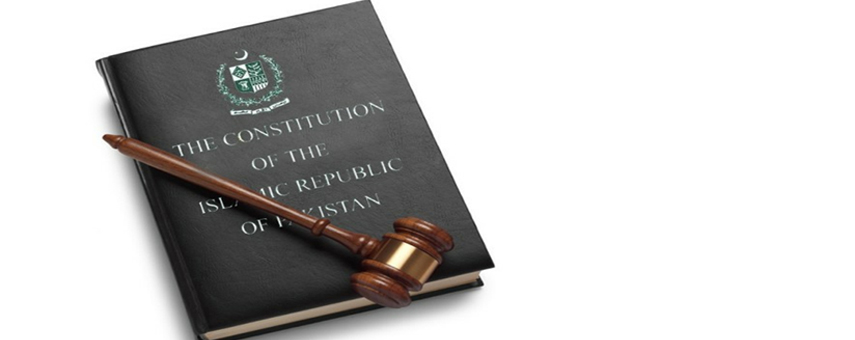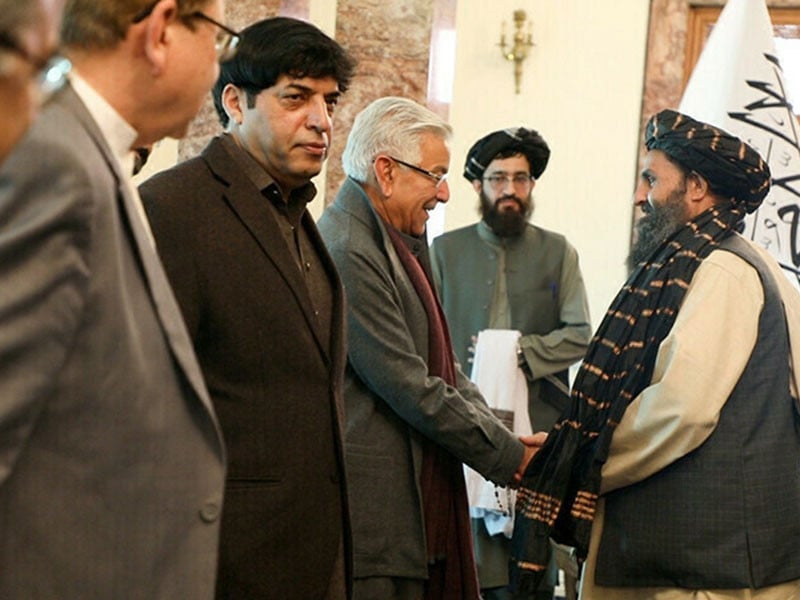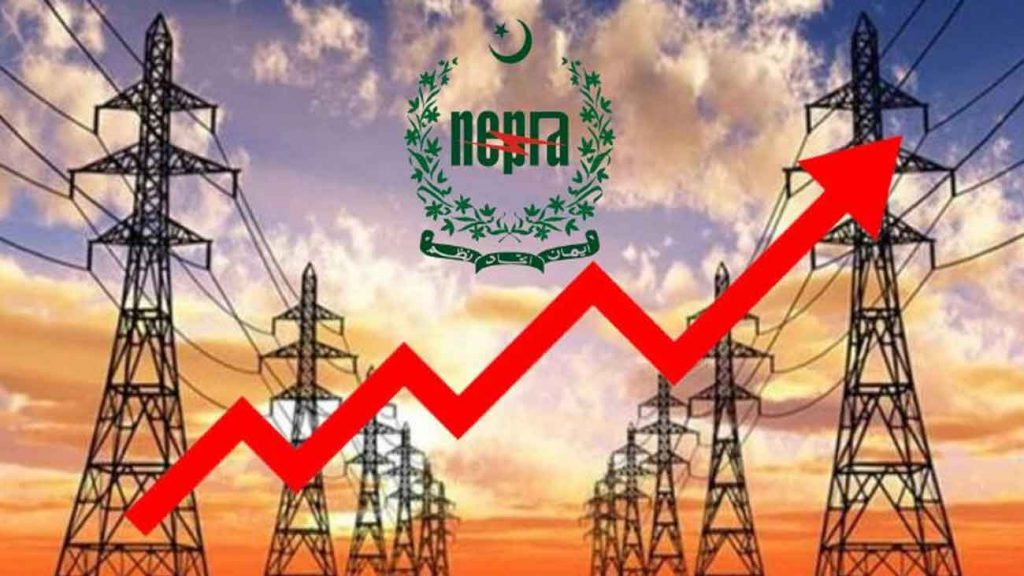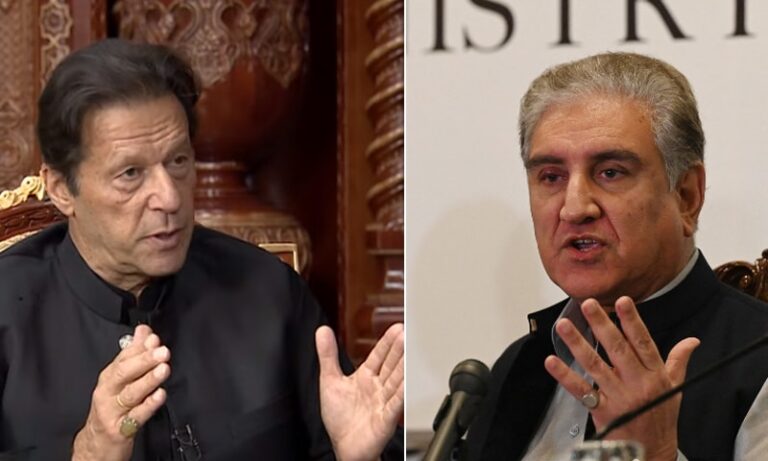EDITORIAL
Article 6 of the Constitution is a unique expression of the sublimity of the Constitution. It is also a product of an evolution marked through military takeovers and subversions of the Constitution. The Article reads as follows;
High treason
[(1) Any person who abrogates or subverts or suspends or holds in abeyance, or attempts or conspires to abrogate or subvert or suspend or hold in abeyance, the Constitution by use of force or show of force or by any other unconstitutional means shall be guilty of high treason.
(2) Any person aiding or abetting [or collaborating] the acts mentioned in clause (1) shall likewise be guilty of high treason.
[(2A) An act of high treason mentioned in clause (1) or clause (2) shall not be validated by any court including the Supreme Court and a High Court.
(3) [Majlis-e-Shoora (Parliament)] shall by law provide for the punishment of persons found guilty of high treason.
Article 6 envisages that any attempt to rescind the Constitution through unconstitutional means will amount to high treason. The Article is called an innovation to the constitutions of the world. The peculiar circumstances of the constitutional history of Pakistan ensured this critical legislative innovation. What is treason? Treason is the crime of attacking a state authority to which one owes allegiance. It typically includes acts such as participating in a war against one’s native country, attempting to overthrow its government, spying on its military, diplomats, or secret services for a hostile and foreign power, or trying to kill its head of state. A person who commits treason in law is a traitor. Then the Constitution of Pakistan also defines treason in its own way.
Article 6 of the Constitution was amended by the 18th amendment act of 2010. The amendment inserted the following changes;
- Article 6(1) states the words “hold in abeyance”.
- Article 6(2) states the terms” or collaborating” and
- Article 6(2A) states that any court shall not validate an act of high treason, including the Supreme court of Pakistan.
What is abrogation of the constituion? Abrogate legal definition means to formally repeal or annul a law through an act of custom, constitutional authority, or the legislature. Abrogate legal definition means to formally repeal or annul a law through the operations of tradition, constitutional power, coercion, or the legislature. Insurance and contract law means to terminate or rescind a contract. In contrast, in constitutional law, abrogation refers to Parliament’s power to revoke a state’s sovereign immunity, thereby authorizing suits against it.
Abrogation is the opposite of rogation and differs from:
- Derogation, or the taking away of some sections of a law
- Subrogation, or the substitution of a clause
- Antiquation, or the refusal to pass the law, and
- Dispensation, which sets aside the law in particular instances.
There is legal abrogation and illegal abrogation. The Article explicitly calls for abrogation through forceful coercion, especially military intervention. The terms subvert, suspend and hold in abeyance also refer to the same connotation. Hence, the operations of the Constitution are enforceable all the time. These operations can neither be abrogated nor suspended, subverted or held in abeyance. The legislature has only the legal competence to amend, insert, substitute and amend the Constitution. Even the courts in Pakistan, including the Supreme court of Pakistan, can not validate the abrogation of the Constitution in any form for whom only the legislature has the supreme competence.
Then, any person aiding or abetting the process of abrogation, subversion, suspension or holding in abeyance the operations of the Constitution shall also be guilty of high treason. A person may be an individual or an institution. All forms of abrogation are high treason, and abettors are also the committers of the crime of high treason. What are the operations of the Constitution? The operations refer to the body of rules, doctrines, and practices governing the political contracts of the communities. In modern times the most important political community is the state and includes all the other political organizations within the framework of the state. Current constitutional law is the offspring of nationalism and the idea that the state must protect certain fundamental rights of the individual. As the number of states has multiplied, so have constitutions and, with them, the body of constitutional law, though sometimes such law originates from sources outside the state.
Meanwhile, protecting individual rights has become a concern of modern nation-states. The Constitution of Pakistan reflects the operations of federalism, parliamentary governance, democracy and fundamental rights. Abrogation in all forms means abrogating the functions of the Constitution. Because the Constitution is the supreme law, it is inappropriate to abrogate it forcefully; Thus, it is treated as high treason.
Clause 6(3) of the Article awards punishment in the form of abrogating the Constitution. It constitutionally empowers the Parliament to legislate the law to award the punishment for guilty of high treason. The Article has political connotations and objectives. It is legislated as a deterrence to control military intervention in the country. Article 2(A) provides that the country’s sovereignty belongs to Allah. However, it shall stand delegated to the people of Pakistan, who will exercise it through chosen representatives out of a sacred trust. Hence, politicians are the only legal persons to lead government operations. Then, the role of the legislature, executive, and judiciary must form the government, and all the organs should operate in allotted spheres under specific checks and balances. Therefore, there is no way military interventions may repeal, suspend, subvert or hold the Constitution of Pakistan in abeyance. Furthermore, the attempt and conspiracy in this regard also include high treason.
Consequently, the process of abrogation in all forms shall show force, oppression, intimidation and forceful coercion; therefore, the Article expressly declares the act as high treason. All accomplices, accessories, and abettors are also guilty of high treason. The definition by Justice Shahid Karim manifests the intent, substance and execution of article 6 of the Constitution.
“Article 6 must gather its meaning from experience and history. Time and again, a legal and constitutional order had been overthrown by imposing dictatorships and Article 6 was meant to be a constitutional deterrence to any such attempt in future.” — Justice Shahid Karim
The words and contexts are critical for the expression and interpretation of the law regimes. The Article is symbolic. It vindicates the spirit of democracy through the legislature that the canons of constitutional supremacy are a sacred trust. Constitutional democracies can not allow forceful or coerced takeovers of the regimes. However, there is so much cloud around article 6 of the Constitution. There is de-jure and de-facto proposition prevalent in the country. It seems a general idea that the legislature shall declare the abettors as traitors or punish them, yet, the Article has so far been able to work as a deterrence in denying the unconstitutional takeover, at least directly, if not indirectly.
More articles: https://republicpolicy.com/explaining-article-4-of-the-constitution-is-there-protection-of-law-in-pakistan/

















































